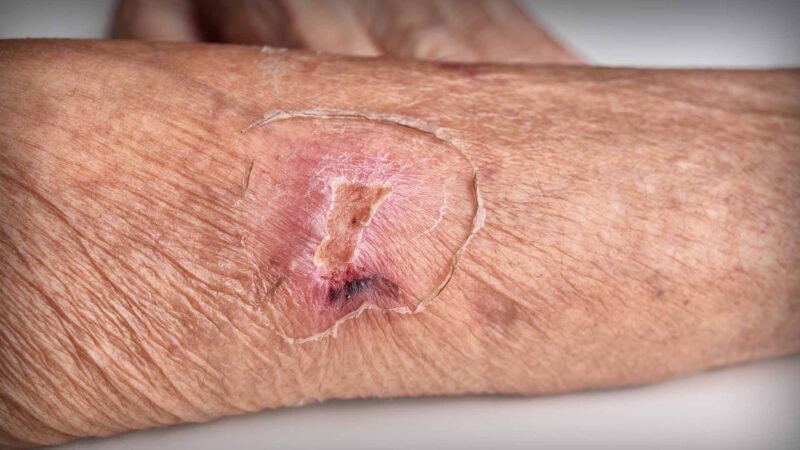AUSTRALIAN CANCER CARE NETWORK LAUNCHES TO LINK SERVICES TO POPULATION, CLINICIANS & RESEARCHERS
Aims to reduce health system disparities and tackle cancers with low survival rates
The landscape of cancer care in Australia is set to transform with the Australian Government launch in May 2024 of the Australian Comprehensive Cancer Network (ACCN) at the Innovations Showcase event, hosted by Cancer Australia in Sydney, Australia.
The ACCN is a nationally integrated system of cancer care, aimed at enhancing patient experiences and outcomes through coordinated and equitable access, by linking to comprehensive cancer services across Australia. Anchored by Comprehensive Cancer Centres (CCCs), the ACCN strives to deliver evidence-driven prevention, diagnosis, treatment, and support to all Australians affected by cancer.
Comprehensive Cancer Centres (CCCs) will serve as anchors in the ACCN, connecting various cancer control services nationwide. Through building partnerships and harnessing virtual connectivity, CCCs will collaborate with other cancer care centres, academic institutions, Aboriginal Community Controlled Health Services, regional hospitals and allied health services, among others.
While Australia has some of the world’s highest cancer survival rates, not all people experience equal outcomes. There are significant disparities in cancer outcomes for some populations, particularly affecting those in rural and remote regions, as well as Aboriginal and Torres Strait Islander communities.
The ACCN aims to address these disparities, emphasising coordinated and equitable access to comprehensive cancer services irrespective of where a person lives, and marking a significant milestone in the advancement of cancer care in Australia.
Australian Health Journal spoke with Professor Dorothy Keefe CEO, Cancer Australia on the ACCN launch and the network being a major milestone in the Australian Cancer Plan, which was launched at the end of 2023.
Participation in the ACCN is voluntary, with services committing to a set of standards focusing on comprehensive cancer care, equitable access, research excellence, data collection, workforce development, and network connectivity. Importantly, the ACCN will complement existing networks and alliances within the cancer care landscape, fostering collaboration and maximising resources.
All services and professionals involved in cancer care are encouraged to join the ACCN and contribute to this transformative initiative.
“As part of the implementation of the Australian Cancer Plan launched in November, the ACCN represents an essential stage towards achieving our goals of improving cancer outcomes and experiences for all Australians.”, says Professor Keefe.
She points out, “To achieve world class cancer outcomes for all Australians and realise the ambition of the Australian Cancer Plan, we need collective action from all sectors of health care to address issues that contribute to variation in cancer outcomes and experience.”
You Might also like
-
Elevating Professional Standards in the Medtech and Pharmaceutical Sector
ARCS Australia Ltd, the peak body representing professionals in the MedTech and Pharmaceutical sector, this week announced a series of significant changes at its annual conference.
Dr Tim Boyle, CEO of ARCS Australia Ltd speaking to Australian Health Journal says, “These initiatives are central to strategy to build professionalism within the sector, increase capability and enhance the professional standing of its members.”
-
Landmark research projects tackle critical issues in emergency healthcare
For two decades, the demand for emergency department services in Australia has outpaced population growth and wait times have increased. In 2022-2023 more than 8.8 million emergency department presentations occurred nationwide.
While demand is a contributing factor, EDs are currently being impacted by various factors across the entire health system.
The Emergency Medicine Foundation (EMF) is a non-profit organisation funding innovative Australian research that improves the way people are cared for in a medical emergency. The aim of the research is to deliver better and more effective health services to save lives and money.
-
Smart technology in wound care
Throughout her journey around wound care, Santosh Kaur was frustrated to see the simple gaps in wound care resulting in negative patient outcomes. Santosh is the founder of SmartHeal which launched in 2020.
SmartHeal replaces the nurses taking cumbersome manual measurements and manual sharing of important wound data with a no touch technique. It aims for healthcare professionals to have live remote access to wound data, make wound assessments and assist with speech to text notes thus saving time, cost and people. SmartHeal also aims to assist healthcare professionals in providing optimum wound care by analysing the wound tissue for infection, moisture and providing suggestions for suitable dressing.



